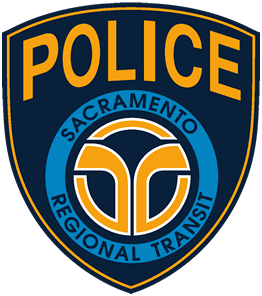 |
Sacramento Regional Transit District Police Services |
Street Smarts
Crossing Streets/Jaywalking
- Park and Ride parking lots can be busy places. Be wary of vehicles backing out of parking stalls. Give plenty of room to SacRT buses, private shuttles and paratransit buses that travel through the parking lots.
- Be careful not to become distracted when crossing the city's busy streets. Cross only at crosswalks and obey traffic or pedestrian signals.
Street Persons
- Like most major cities, Sacramento has a street population. Some may be homeless, others may be vagrants or panhandlers.
- Most street people are harmless; however, a few are chronic law violators who may infringe upon the rights of others. Demonstrate a combination of respect and caution around panhandlers and strangers.
- Contributing money to people on the street will not necessarily help solve the problem of homelessness or vagrancy. In fact, it may encourage more panhandling. If you feel inclined to assist the homeless, it is suggested that contributions be given to one of the many local charities, missions, food banks or social service organizations that assist those in need.
Test Your "Street Smarts" IQ
Do you...
- Jog or walk by yourself early in the morning or late at night when the streets are quiet and deserted?
- Stuff your purse with cash, keys, credit cards, checkbook - and then leave it wide open on a counter, your desk, and/or the floor?
- Put your wallet in a jacket, which you then hang up or throw over a chair?
- Let your mind wander - thinking about your job, or all the things you have to do - when walking or driving?
- Think it's a waste of time to lock your car when you'll be back in a few minutes?
If you answered "yes" to any of these questions, you need to change a few habits. Even if you answered "no" and made a perfect score, read on. Spend a few minutes now to prevent trouble later.
Basic Street Sense
- Wherever you are - on the street, in an office building or shopping mall, driving, waiting for a bus or subway - stay alert and tuned in to your surroundings.
- Send the message that you're calm, confident, and know where you're going.
- Trust your instincts. If something or someone makes you uneasy, avoid the person or leave.
- Know the neighborhoods where you live and work. Check out the locations of police and fire stations, public telephones, hospitals, and restaurants, or stores that are open late.
On Foot
- Stick to well-travelled streets. Avoid shortcuts through wooded areas, parking lots, or alleys.
- Don't flash large amounts of cash or other tempting targets like expensive jewelry or clothing.
- Carry a purse close to your body, not dangling by the straps.
- Put a wallet in an inside coat or front pants pocket, not a back pocket.
- Try to use automated teller machines in the daytime. Have your card in hand and don't approach the machine if you're uneasy about people nearby.
- Don't wear shoes or clothing that restrict your movements.
- Have your car or house key in hand before you reach the door.
- If you think someone is following you, switch direction or cross the street. Walk toward an open store, restaurant, or lighted house. If you're scared, yell for help.
- Have to work late? Make sure there are others in the building, and ask someone - a colleague or security guard - to walk you to your car or transit stop.
Learn More About Auto Theft and Carjacking
- Keep your car in good running condition. Make sure there's enough gas to get where you're going and back.
- Always roll up the windows and lock car doors, even if you're coming right back. Check inside and out before getting in.
- Avoid parking in isolated areas. Be especially alert in lots and underground parking garages.
- If you think someone is following you, don't head home.
- Drive to the nearest police or fire station, gas station, or other open business to get help.
- Don't pick up hitchhikers. Don't hitchhike.
On Buses and Trains
- Use well-lit, busy stops.
- Stay alert! Don't doze or daydream.
- If someone harasses you, don't be embarrassed. Loudly say "Leave me alone!" If that doesn't work, hit the emergency device.
- Watch who de-boards the bus or train with you. If you feel uneasy, walk directly to a place where there are other people.
If Someone Tries To Rob You
- Don't resist. Give up your property; don't give up your life.
- Report the crime to the police. Try to describe the attacker accurately. Your actions can help prevent others from becoming victims.
- Learn more about things you can do and things kids can do.
- Take a stand.
- Make your neighborhood and workplace safer by reporting broken street lights, cleaning up parks and vacant lots, and lobbying local government for better lighting in public places.
- Join a Neighborhood, Apartment, or Office Watch to look out for each other and help the police. Or find out how you can organize a neighborhood watch.
- Help out a friend or co-worker who's been a victim of crime.
- Cook a meal, babysit, find the number for victim services or a crisis hotline.
- Listen, sympathize, and don't blame.
- Look at the root causes.
- Work for better drug treatment services, crime and drug abuse prevention education, and job and recreational opportunities for young people in your community.